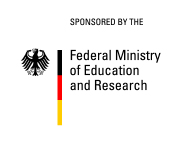Bernstein Conference 2012, Sept. 12-14 in Munich
Understanding the brain – that is the ambitious research goal of Computational Neuroscience, in which scientists from biology, medicine, psychology, physics, mathematics and computer science work together to get a better grasp on the working principles of the brain. From September 12 to 14, 2012, more than 400 international scientists of this research area come together in Munich for the Bernstein Conference Computational Neuroscience 2012.
The conference is opened in the lecture halls of the university hospital Klinikum rechts der Isar (Einsteinstr. 1) on Wednesday, September 12th, at 2 p.m., with the conferral of the Bernstein Award for Computational Neuroscience. With up to 1.25 million Euros, provided over a course of 5 years, the Bernstein Award is one of the best remunerated scientific junior awards worldwide. The funding allows excellent young researchers to build up an independent research group within a German research institution.
Afterwards, the Valentino Braitenberg Award – The Golden Neuron 2012 - will be conferred for the first time. The prize was established in honor of Professor Valentino Braitenberg, one of the founding directors of the Tübingen Max Planck Institute for Biological Cybernetics and pioneer of Computational Neuroscience in Germany. This year’s award goes to Professor Moshe Abeles of the Gonda Multidisciplinary Brain Research Center in Israel. With his research into the structure and function of cortical circuits and his „synfire chain theory“, Abeles has profoundly influenced international brain research.
For the general public, the conference features a public lecture in German language on Thursday, Sept. 13, at 8 p.m.. Professor Onur Güntürkün from Ruhr-University Bochum will offer fascinating insights from the forefront of research about how birds - usually considered to be much less smart than primates - have found a way to achieve top cognitive performance. The lecture is open to the public. No entrance fee is charged, and no registration is necessary.
A further highlight is the second „NeuroVision Film Contest“, featuring short videos that explain topics from brain research in an easily comprehensible manner. The videos are shown throughout the conference and are judged by a highly ranked jury as well as the conference participants. The winners are announced on Friday, September 14, at 3:50 p.m..
Over the course of the conference, more than twenty internationally renowned scientists are lecturing, and over 250 poster contributions will be shown. The conference is the annual meeting of the Bernstein Network Computational Neuroscience, which is funded by the German Ministry for Education and Research (BMBF). In this funding initiative, the BMBF is supporting the new discipline of Computational Neuroscience since 2004 with a total of more than 150 million Euros. The network is named after the German researcher Julius Bernstein, who provided the first biophysical explanation for the propagation of nerve signals.
This year’s conference is organized by the Bernstein Center Munich that is coordinated at LMU and in which also TUM, the Max Planck Institute for Neurobiology, and the companies MED-EL and npi electronics take part. The Bernstein Conference 2012 is held in conjunction with the international Neuroinformatics Congress that takes place immediately before (September 10-12) at the same venue.
Interested journalists are cordially invited to the conference and the award ceremonies. Please kindly register until September 6th with Dr. Simone Cardoso de Oliveira (Bernstein Coordination Site, cardoso@bcos.uni-freiburg.de, phone: 0761 – 203-9583). Registered journalists can be provided with exclusive information on the awardees, and, upon request, personal interviews with the awardees can be arranged.
Further information:
Bernstein Conference 2012: www.bccn2012.de
National Bernstein Network Computational Neuroscience: www.nncn.de

